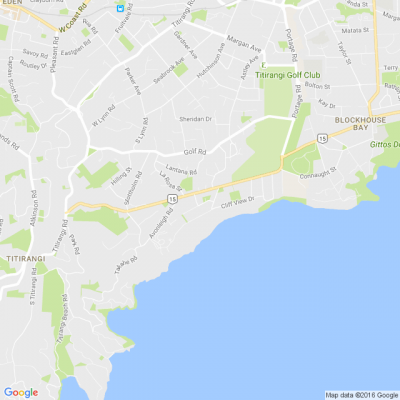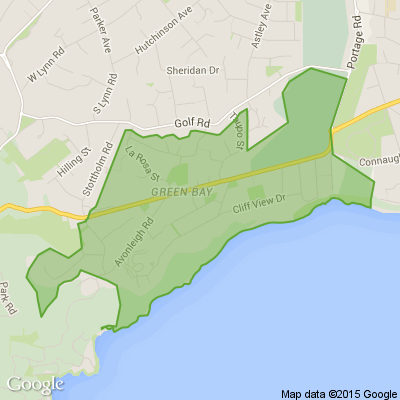Auckland named as world's most liveable city
Covid-19 has shaken up the Economist Intelligence Unit's (EIU) annual ranking of most liveable cities, propelling Auckland to first place. New Zealand's most-populous city, home to 1.7 million Kiwis, beat out major cosmopolitan centres such as Tokyo and Vienna, the champion of the last poll in 2019. Wellington also rocketed up the list, with "The Coolest Little Capital in the World" sitting at number four on the list, released by the Economist Intelligence Unit (EIU).
So what does Auckland have that the rest don't?
As it turns out, the question answered by the poll is what doesn't it have?
The answer: Covid.
Other cities saw their ratings tumble as the effect of the pandemic dramatically curtailed the quality of life for their residents. Lockdowns imposed around the world lowered cities' scores in the survey's "culture and environment" category. For example, Vienna crashed out of the top 10 entirely, coming in 12th as New Zealand, Australia and Japan cities fared best. The Austrian capital had led the list since 2018 and for years ran neck and neck with Melbourne at the top of the survey of 140 urban centres. Lockdowns imposed around the world lowered cities' scores in the survey's "culture and environment" category. The four other categories are stability, healthcare, education and infrastructure. New Zealand's elimination of Covid-19 within its borders through lockdown measures helped by its geographic isolation, however, gave its cities a big boost. "New Zealand's tough lockdown allowed their society to reopen and enabled citizens of cities like Auckland and Wellington to enjoy a lifestyle that looked similar to pre-pandemic life," the EIU said in a statement. The EIU generally does not make the full rankings public. The last time Auckland was in the top 10 was in 2017, when it came eighth, a position Melbourne shared with Geneva this year. Vienna fell to 12th. Illustrating New Zealand's advantage this year, Wellington came fourth behind Osaka, which rose two spots to second place, and Adelaide, which leapfrogged its compatriots Sydney and Melbourne to third place from 10th. "The Covid-19 pandemic has taken a heavy toll on global liveability," the EIU said. "Cities across the world are now much less liveable than they were before the pandemic began, and we've seen that regions such as Europe have been hit particularly hard." The European Union struggled to get its vaccination campaign off the ground and many member states, including Austria, imposed more lockdowns than they had hoped to, hurting their cities' scores in the measure of 'culture and environment'. The four other categories assessed are stability, healthcare, education and infrastructure. So Aucklanders, next time you're sitting in traffic, waiting for a bus that never turns up or dodging window washers at intersections, remember that you don't have it so bad.
=====================================================

Poll: Should drivers retake the theory test every 10 years?
Drivers get where they need to go, but sometimes it seems that we are all abiding by different road rules (for example, the varying ways drivers indicate around a roundabout).
Do you think drivers should be required to take a quick driving theory test every 10 years?
Vote in the poll and share any road rules that you've seen bent! 😱

-
49.5% Yes
-
48.6% No
-
1.9% Other - I'll share below
Here's Thursday's thinker!
I am lighter than air, but a hundred people cannot lift me. What am I?
Do you think you know the answer to our daily riddle? Don't spoil it for your neighbours! Simply 'Like' this post and we'll post the answer in the comments below at 2pm.
Want to stop seeing riddles in your newsfeed?
Head here and hover on the Following button on the top right of the page (and it will show Unfollow) and then click it. If it is giving you the option to Follow, then you've successfully unfollowed the Riddles page.

Why make picking up reserved library books harder? What do you think? Challenge: Write the last stanza for the first poem attached below.
Once books are reserved in Auckland Libraries books, when they are available no longer go alphabetically by customer but instead go into a Holds pickup shelf number based presumably somehow on when each book needs to be picked up by.
I had two books reserved that arrived on two different days in the Blockhouse Bay Library and hence each book has a different shelf number. Hard to find unless you knew the shelf number in the notification email. Even if you knew the shelf number I found myself three books by the same author on the two shelf numbers.
More recently yesterday a book I reserved was on a different shelf number than was specified in my notification email (see image below).
Sadly it is clear from library staff that a numerical system for reserves is here to stay.
I suggest that so that all books for each person has the same shelf number, the shelf number becomes the last digit of a person's library card (0-9).
Within each shelf number a book is found under the day the reserve arrives in the library (01 to 31, hopefully the same date the email is sent).
Since a customer appears to have 10 days to pick up a book, ten days of the month would appear to be required at any time (for each digit 0-9).
Once there are 10 days used the next day's reserves could go back at the beginning of the shelf number after any remaining books not collected (hopefully none) are removed (along with the old day number and the new day number (01 to 31) inserted) after the last day available and future days' books remaining moved forward to make room.
Each day number (01-31) would appear once for each shelf number (0-9) before the first book on that day- perhaps cover an old withdrawn book with paper with each day number on the spine?
When a reserved book arrives in the library the last digit of the library card could be placed on a piece of paper in the book to be removed when it is put on the shelf, to be recycled the next day.
What do you think?
See the image below and page 3 below for a letter appearing in the Western Leader on 9 September:
www.neighbourly.co.nz...









 Loading…
Loading…















